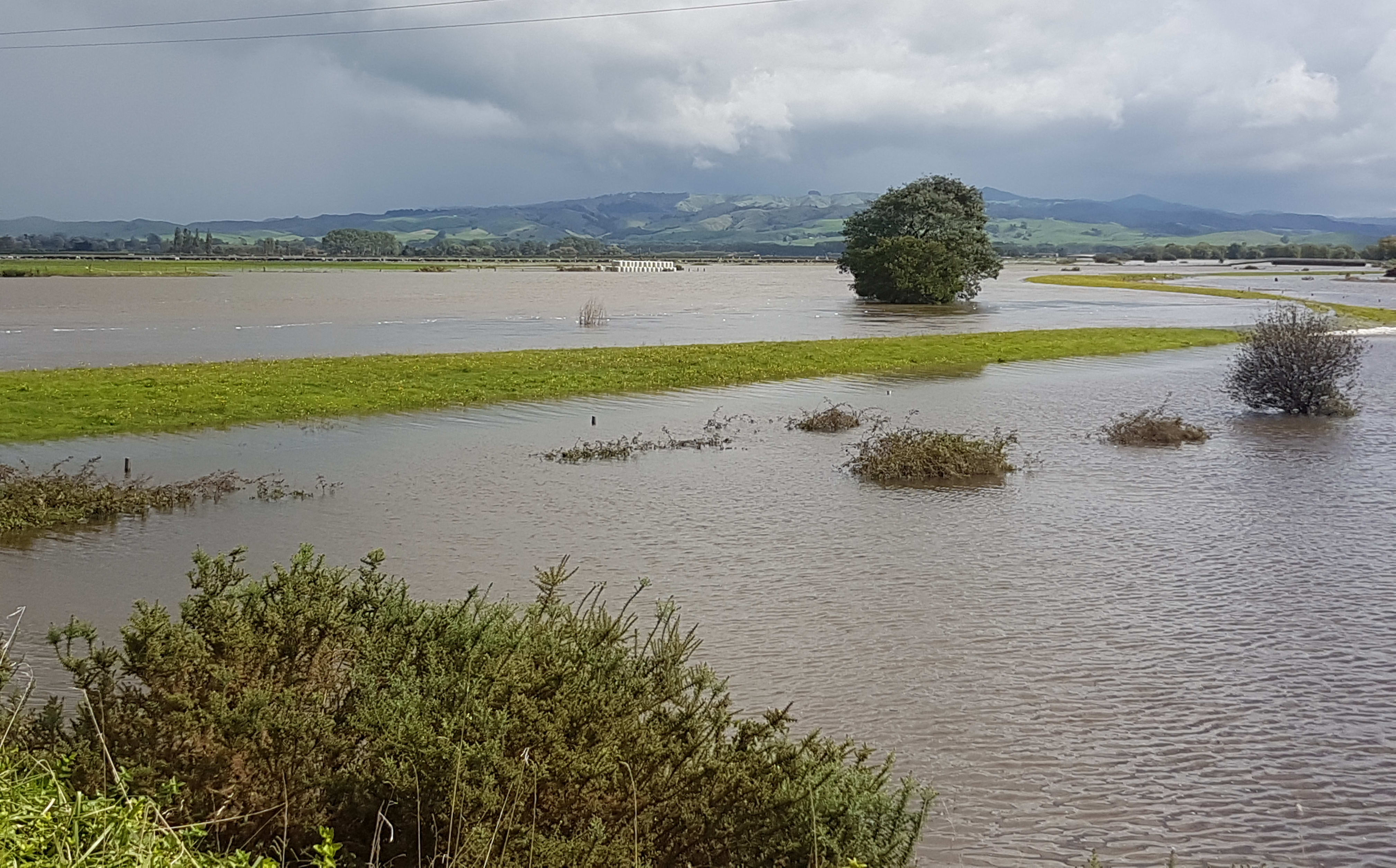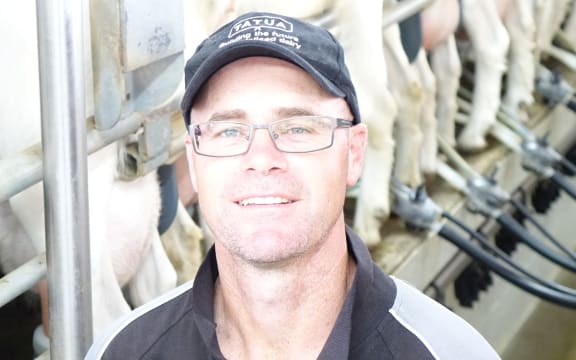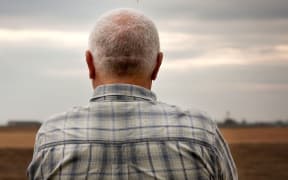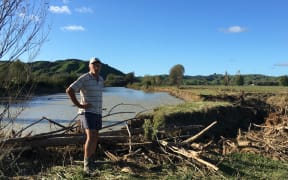A Waikato farmer is pushing for the government to provide better mental health support for the rural sector.

Richard Cookson's farm was inundated with water from the flooded Waitoa river during Cyclone Cook. Photo: Supplied / Richard Cookson
Research shows that the suicide rate in New Zealand's rural sector is up to 50 percent higher than in urban areas.
Dairy farmer Richard Cookson has had his own struggle with mental health, and said while there is good crisis support for farmers, such as the Rural Support Trust, there isn't enough for depression.

Richard Cookson Photo: RNZ / Andrew McRae
This Mental Health Awareness Week, Mr Cookson said a good start would be free counselling to get farmers in the door, but the sector also needs quite specific help.
"It's really difficult to find counsellors who would be in the space to understand both the farming side of it and then the wellbeing side of it, with respect to the psychology.
"There's a real hole in counselling services around trying to find both that agricultural planning and the other type of support."
Having a business that relies on the weather, the markets, and the consumer is hard work, but Mr Cookson believes that farmers can reduce their stress and anxiety with better forward planning.
He said if farmers were struggling with their mental health then they need to get help to protect their business.
"I'm constantly looking at our weather patterns and analysing them, I'm always thinking about what I need to change.
"That sense of planning needs to come from rural professionals. There's a combination of things that farmers need to get through that crisis point and into a place where they can see that there is a future."
Once farmers are aware of where the main issues lie, then they need more support and advice to overcome it, he said.
"Say, 'Well, what do we need to do to change this business so that basically it doesn't kill you?'"
Mr Cookson was worried that the wet winter and spring would result in high rates of cows not getting pregnant for the new season, and he said the new year could be very hard on farmers.
"So are we going to see a lot of empties, a lot of late cows.
"You combine that with the possible change towards a La Niña weather pattern, then potentially we could get our empty rates in February and also be in the middle of a drought.
"Farmers as a group, we're all worried - but how many farmers are actually changing something to put that into consideration right now?"







